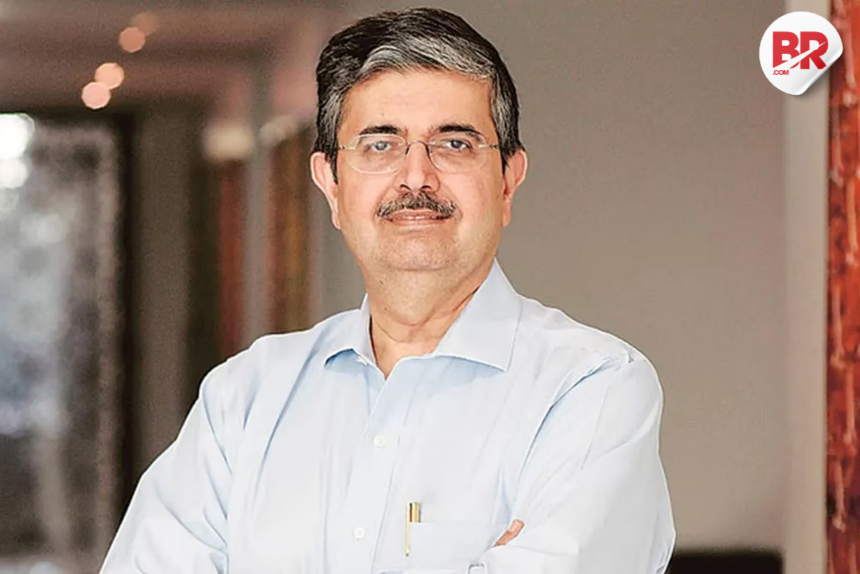Uday Kotak, one of India’s top bankers, recently made headlines by calling Indian housewives the “smartest fund managers in the world.” At first glance, his statement might sound like a generous compliment.
But it has sparked a lively debate, especially after Sridhar Vembu, the founder of Zoho, shared his thoughts, which add a fresh perspective to the conversation.
Kotak’s Compliment: A Nod to Smart Financial Management
Kotak’s statement likely comes from the widely recognized financial wisdom of Indian housewives. They are often the unsung heroes of household budgeting, making sure money goes further than expected.
Whether it’s grocery shopping on a tight budget, saving on utility bills, or ensuring the kids’ education funds are in place, many women manage finances with an instinctive knack for maximizing value.
One of their most well-known practices is investing in assets like gold, a safe bet that many Indian families have trusted for generations. With gold prices soaring, this investment strategy continues to show the staying power of traditional methods of wealth-building.
Here’s how Kotak might have seen things:
- Budgeting Prowess: Managing expenses month after month within a limited budget, a skill that takes patience and foresight.
- Saving Strategies: Recognizing opportunities to save in everyday expenses like groceries or even utility bills, often to the benefit of long-term goals.
- Investment Instincts: Preferring tangible assets like gold or real estate, which are considered safer in times of uncertainty.
Kotak’s praise is valid from this standpoint. Many people, especially in India, have seen firsthand how resourceful housewives are in making ends meet, all while keeping families financially afloat.
Also Read Saudi Kashmir Stance Shifts: India’s Diplomatic Win, Pakistan Left in the Lurch
Vembu’s Take: Empowering Women Through Education and Technology
On the flip side, Sridhar Vembu, known for his focus on rural development and tech-driven innovation, may have a slightly different perspective.
Vembu advocates for formal education, especially financial literacy, as a way to help women step beyond traditional roles into the formal economy.
His view suggests that while managing household finances is essential, there’s also a need for women to gain access to modern financial tools and systems. This can be a key step toward greater economic independence.
With Vembu’s emphasis on technology, it’s clear he sees digital tools as a way to democratize financial knowledge and open doors for women to participate in the formal financial markets.
Key areas of Vembu’s focus include:
- Financial Literacy: Moving beyond traditional methods of financial planning and understanding new tools for investment and savings.
- Economic Empowerment: Giving women opportunities to step into roles where they can make more significant financial decisions, from saving to investing.
- Technology Use: Integrating technology into personal finance, allowing women to make informed decisions in real-time.
Also Read The Future of Healthcare: Will AI Cure All Diseases? DeepMind’s Surprising Take
The Bigger Picture: Beyond the Stereotype
This discussion reveals a broader need to rethink how we talk about women’s roles in finance. While Kotak’s words might seem like a compliment, they risk oversimplifying the complex realities women face.
Indian housewives aren’t just fund managers—they are individuals with the potential to be part of a larger financial ecosystem that is growing and changing rapidly.
Consider these points:
- Access to Education: Ensuring that all women, regardless of their background, have access to education, especially financial literacy, is crucial.
- Breaking Barriers: Overcoming societal norms and stereotypes that limit women’s participation in formal finance.
- Financial Independence: Empowering women to take control of their financial futures, whether through entrepreneurship, investments, or smart budgeting.
Looking Ahead: A More Inclusive Future
The ultimate goal is to create an environment where women are not just acknowledged for their resourcefulness in the home but are given the tools to thrive in the wider world of finance.
Kotak’s praise is just one piece of the puzzle. What’s more important is ensuring that women have access to education, technology, and financial opportunities that go beyond traditional roles.
Whether it’s the savvy of a housewife managing a household budget or a forward-thinking entrepreneur like Sridhar Vembu driving innovation, the future of finance needs to be inclusive, empowering, and dynamic.
Also Read Namita Thapar Warns: 70-Hour Workweeks Are Failing Our Children




